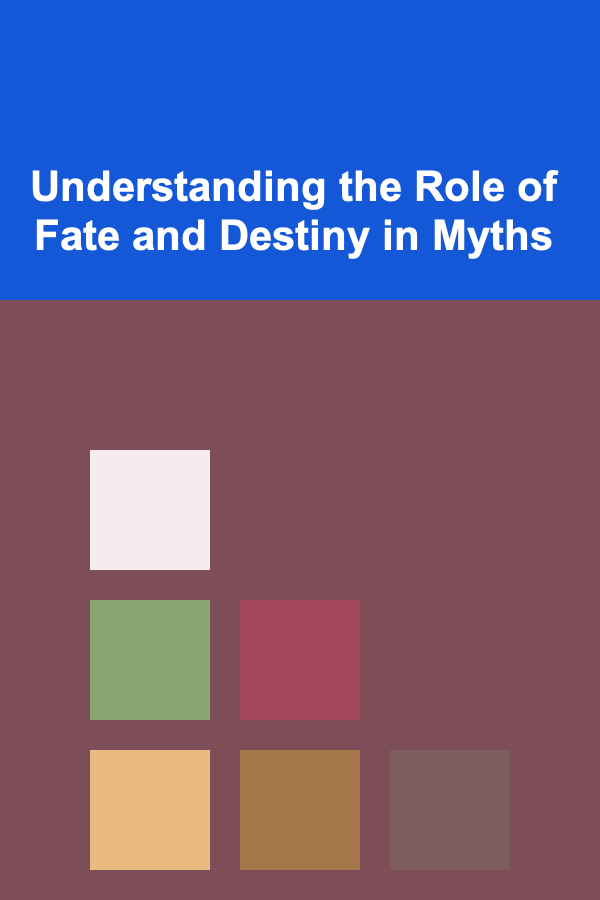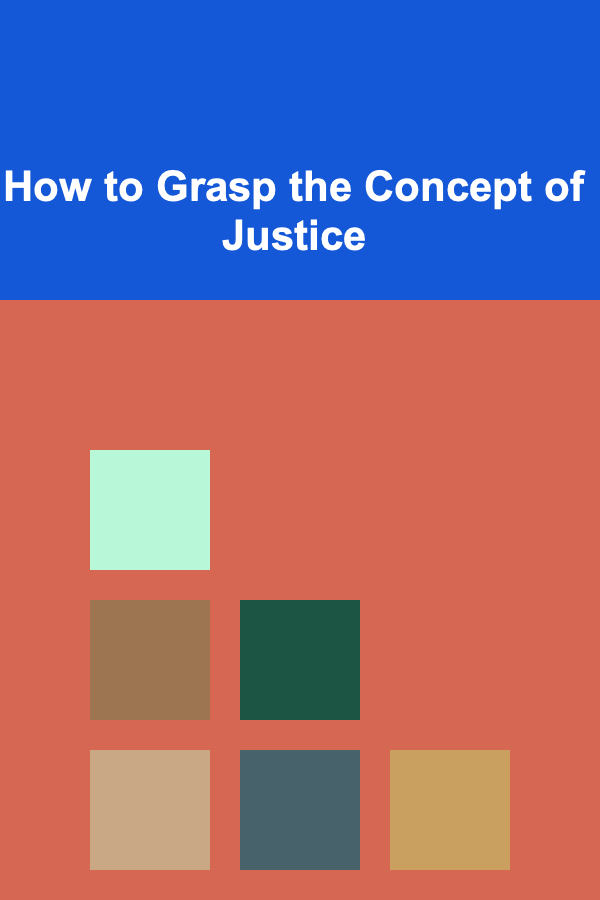
Understanding the Role of Fate and Destiny in Myths
ebook include PDF & Audio bundle (Micro Guide)
$12.99$5.99
Limited Time Offer! Order within the next:

Myths, the foundational narratives of cultures worldwide, are replete with explorations of profound and enduring human concerns. Among these, the concepts of fate and destiny stand out as particularly compelling, shaping the trajectories of heroes, influencing the outcomes of wars, and reflecting deep-seated anxieties and aspirations about the nature of existence. Understanding how fate and destiny function within these narratives requires careful attention to the specific cultural context, the nature of the gods and their relationship with mortals, and the choices available to individuals within a predetermined framework.
Defining Fate and Destiny: Nuances and Overlaps
While often used interchangeably, fate and destiny possess subtle but significant nuances that are crucial for interpreting their roles in myths. Fate is generally understood as a predetermined, inescapable course of events, often dictated by external forces, such as the gods or impersonal cosmic laws. It is the idea that certain outcomes are inevitable, regardless of individual actions or desires. The Greek concept of moira, embodied by the three Fates (Clotho, Lachesis, and Atropos), exemplifies this understanding. They spun, measured, and cut the thread of each person's life, determining its length and essential character. No one, not even Zeus, could alter their decrees.
Destiny, on the other hand, often carries a sense of purpose or inherent potential. It implies a preordained path, but one that individuals may actively work towards or against. Destiny can be viewed as a calling, a mission, or a set of inherent qualities that propel an individual toward a particular end. While fate might dictate what happens, destiny often suggests why it happens, imbuing events with meaning and significance. It's the "what you are meant to be," the fulfillment of an inherent potential. Think of the prophecy surrounding Oedipus: the fate was to kill his father and marry his mother; his destiny, perhaps, was to explore the limits of human agency and the nature of guilt and responsibility through that horrific fate.
The distinction, however, is not always clear-cut, and many myths deliberately blur the lines. Sometimes, what appears to be an immutable fate can be subtly influenced by individual choices, or a seemingly preordained destiny can be thwarted by unexpected events. This ambiguity contributes to the enduring power of these narratives, forcing audiences to grapple with the complex interplay between free will and determinism.
Fate in Greek Mythology: An Inescapable Force
Greek mythology provides perhaps the most well-known and extensively explored examples of fate's pervasive influence. The concept of moira permeates nearly every aspect of Greek heroic narratives and tragedies. Characters are born with a preordained lot, and their lives unfold in accordance with that divine plan, often despite their best efforts to avoid it.
The Tragedy of Oedipus
The story of Oedipus is a quintessential example of fate's iron grip. An oracle foretells that Oedipus will kill his father and marry his mother. His parents, King Laius and Queen Jocasta of Thebes, attempt to circumvent this fate by abandoning him as an infant. However, their efforts are ultimately futile. Oedipus is rescued and raised in another kingdom, but upon learning of the prophecy himself, he flees, determined to avoid fulfilling it. Ironically, it is this very act of fleeing that leads him to unknowingly encounter and kill his father, and subsequently, to marry his mother after solving the Sphinx's riddle and becoming king of Thebes.
The tragedy lies not only in the horrific events themselves, but also in Oedipus's relentless pursuit of knowledge and justice. He is a man of great intelligence and integrity, driven by a desire to uncover the truth. Yet, the more he investigates the past, the closer he comes to realizing the horrifying reality of his own fate. His attempts to control his destiny only serve to accelerate its fulfillment. Oedipus's story highlights the powerlessness of mortals in the face of an immutable fate, and the devastating consequences of defying the divine order.
Other Examples from Greek Myth
Numerous other Greek myths illustrate the pervasive influence of fate. The prophecies surrounding the Trojan War, the labors of Heracles, and the wanderings of Odysseus all demonstrate the limitations of human agency. Characters may strive, suffer, and even achieve moments of triumph, but ultimately, their lives are guided by the threads spun by the Fates. The gods themselves are not immune to fate. While they wield considerable power, they are bound by the same cosmic order that governs the lives of mortals. Even Zeus, the king of the gods, cannot arbitrarily alter the decrees of the Fates.
This emphasis on fate reflects a profound sense of the precariousness of human existence. In a world governed by powerful and often unpredictable forces, individuals are vulnerable and subject to the whims of destiny. Greek myths, therefore, serve as cautionary tales, reminding audiences of the limits of human ambition and the importance of accepting one's place within the cosmic order.
Destiny in Norse Mythology: A Call to Heroism and Sacrifice
While fate also plays a significant role in Norse mythology, the concept of destiny is equally, if not more, prominent. Norse myths emphasize the importance of heroic action and personal responsibility, even in the face of an inevitable doom. Characters are not simply passive recipients of fate; they actively shape their own destinies through their choices and actions. The concept of wyrd, often translated as "fate" or "destiny," is central to understanding this dynamic. Wyrd encompasses the interconnected web of past, present, and future events, and it influences the lives of both gods and humans.
Ragnarok: The Inevitable Twilight of the Gods
The most striking example of destiny in Norse mythology is Ragnarok, the twilight of the gods and the destruction of the world. The prophecies surrounding Ragnarok are well-known and widely discussed throughout the Norse sagas and Eddas. The gods are aware of their impending doom, yet they do not passively await their fate. Instead, they actively prepare for the battle, training warriors, forging weapons, and engaging in heroic deeds. Odin, the Allfather, sacrifices his eye for wisdom and hangs himself on Yggdrasil, the world tree, to gain knowledge of the runes, all in an effort to understand and prepare for Ragnarok.
The inevitability of Ragnarok does not diminish the significance of the gods' actions. On the contrary, it enhances their heroism. They fight valiantly, knowing that they are destined to fall. Their courage and self-sacrifice in the face of certain defeat exemplify the Norse ideal of the heroic warrior. Ragnarok is not simply a tragic end; it is also a testament to the power of human (and divine) will and the enduring value of honor and courage.
Individual Destiny and Heroic Choice
Beyond Ragnarok, individual characters in Norse myths also grapple with their own destinies. Sigurd, the hero who slays the dragon Fafnir, is destined to die young, but his actions have far-reaching consequences, shaping the fate of kingdoms and inspiring future generations. The Valkyries, female figures who choose who lives and dies in battle, also play a crucial role in shaping individual destinies. Their choices are not arbitrary; they select those who are worthy of Valhalla, Odin's hall for slain heroes.
Norse mythology emphasizes the importance of living a life of honor and courage, regardless of one's predetermined fate. Even if death is inevitable, how one faces that death is what truly matters. This focus on individual agency and heroic action distinguishes Norse mythology from the more fatalistic worldview of the Greeks. While fate sets the stage, it is the choices of individuals that ultimately determine the outcome.
Fate and Destiny in Eastern Mythologies: Karma, Dharma, and the Cycle of Rebirth
Eastern mythologies, particularly those originating in India and East Asia, offer a distinct perspective on fate and destiny, often intertwined with concepts such as karma, dharma, and the cycle of rebirth (samsara). Unlike the Western focus on linear time and individual heroism, Eastern myths tend to emphasize cyclical patterns, interconnectedness, and the gradual accumulation of spiritual merit. The understanding of fate and destiny is profoundly shaped by these philosophical underpinnings.
Karma and Rebirth: The Law of Cause and Effect
Karma, a central concept in Hinduism, Buddhism, and Jainism, is the law of cause and effect. Every action, thought, and intention creates a corresponding reaction, shaping one's future experiences and influencing their subsequent rebirths. Good deeds lead to positive consequences, while negative actions result in suffering. Karma is not simply a system of rewards and punishments; it is a complex and intricate process that governs the entire universe. It's crucial to note that karma isn't a fixed, deterministic fate. While past actions influence the present, individuals retain the capacity to shape their future through their current choices.
The cycle of rebirth (samsara) is inextricably linked to karma. Individuals are reborn repeatedly, with each life determined by the cumulative effects of their past actions. The goal of many Eastern spiritual traditions is to escape this cycle of suffering by achieving enlightenment or liberation (moksha or nirvana), thereby transcending the limitations of karma and fate. The stories and myths of these traditions often depict individuals striving to improve their karma and ultimately break free from the cycle of rebirth.
Dharma: Duty and Righteous Conduct
Dharma refers to one's duty, righteousness, or cosmic order. It encompasses the principles of moral and ethical conduct that guide individuals towards fulfilling their potential and living a meaningful life. Dharma is not simply a set of rules; it is a framework for understanding one's place in the universe and acting in accordance with its inherent order. Each individual has a unique dharma, determined by their caste, stage of life, and personal qualities. Fulfilling one's dharma leads to positive karma and a favorable rebirth, while neglecting it results in negative consequences.
Examples from Hindu Mythology
The epic tales of the Ramayana and the Mahabharata offer rich examples of the interplay between karma, dharma, fate, and destiny. Rama, the hero of the Ramayana, is an embodiment of dharma, consistently acting in accordance with righteousness and fulfilling his duties as a prince and a king. His exile, his battles against Ravana, and his eventual triumph are all shaped by his commitment to dharma and his accumulated karma. The Pandavas in the Mahabharata, though facing numerous trials and tribulations, ultimately triumph over their adversaries due to their adherence to dharma and their unwavering faith.
These myths emphasize that while fate may play a role in shaping external circumstances, individuals have the power to influence their own destinies through their choices and actions. By aligning themselves with dharma and accumulating positive karma, they can overcome adversity and achieve spiritual liberation. The focus is not on defying fate, but on understanding its workings and using it as an opportunity for growth and self-improvement.
The Role of Prophecy: A Window into Fate and Destiny
Prophecy, the foretelling of future events, is a common motif in myths across cultures. Prophecies serve as a window into the workings of fate and destiny, revealing the predetermined course of events and highlighting the choices available to individuals within that framework. However, prophecies are often ambiguous, paradoxical, or self-fulfilling, adding layers of complexity to the narratives and challenging the notion of a fixed and immutable future.
The Double-Edged Sword of Knowledge
Prophecies can empower characters by providing them with knowledge of future events, allowing them to prepare and make informed decisions. However, this knowledge can also be a burden, leading to anxiety, fear, and ultimately, self-destructive behavior. The story of Oedipus is a prime example of the latter. His knowledge of the prophecy about his fate leads him to take actions that inadvertently fulfill it.
The ambiguity of prophecies also contributes to their power. Prophecies are often couched in symbolic language or metaphorical terms, leaving room for interpretation and manipulation. Characters may misinterpret prophecies, leading them to make decisions that have unintended consequences. The oracles of Delphi in ancient Greece were notorious for their ambiguous pronouncements, which could be interpreted in multiple ways, often leading to confusion and disaster.
Self-Fulfilling Prophecies
The concept of a self-fulfilling prophecy is particularly relevant to understanding the role of prophecy in myths. A self-fulfilling prophecy is a prediction that directly or indirectly causes itself to become true, due to the positive feedback between belief and behavior. The fear of a prophesied event can lead individuals to take actions that ultimately bring about its fulfillment. This highlights the complex relationship between belief, action, and reality. Characters who believe in the inevitability of a prophecy may unconsciously act in ways that make it come true, demonstrating the power of belief to shape reality.
Beyond Predetermination: Agency and Interpretation
While prophecies often appear to reinforce the idea of predetermination, they can also serve as a catalyst for change and transformation. The knowledge of a prophecy can motivate characters to take action, challenge their fate, and ultimately, shape their own destinies. The interpretation of a prophecy is also crucial. Different characters may interpret the same prophecy in different ways, leading them to take different actions and ultimately achieve different outcomes. This underscores the importance of individual agency and the power of interpretation in navigating the complexities of fate and destiny.
Conclusion: The Enduring Relevance of Fate and Destiny in Myths
The concepts of fate and destiny remain enduringly relevant in myths because they reflect fundamental human concerns about the nature of existence, the limits of free will, and the search for meaning and purpose. Myths grapple with questions that have plagued humanity for centuries: Are our lives predetermined? Do we have the power to shape our own destinies? What is the relationship between individual agency and external forces?
By exploring these questions through compelling narratives and symbolic imagery, myths offer valuable insights into the human condition. They remind us of the precariousness of existence, the importance of ethical conduct, and the enduring power of hope and resilience. They challenge us to consider our own beliefs about fate and destiny, and to reflect on the choices we make in our own lives.
Understanding the role of fate and destiny in myths requires a nuanced and contextual approach. It is essential to consider the specific cultural context, the nature of the gods and their relationship with mortals, and the choices available to individuals within a predetermined framework. By doing so, we can gain a deeper appreciation for the enduring power and relevance of these ancient narratives.

How to Deep Clean Your Kitchen Without the Hassle
Read More
How to Make Money from Your Deep Learning Skills Without Coding
Read More
How to Organize a Family Talent Show with a Creative Twist
Read More
How to Use Dollar-Cost Averaging to Reduce Investment Risk
Read More
How to Grasp the Concept of Justice
Read More
Understanding Gas Fees on the Blockchain
Read MoreOther Products

How to Deep Clean Your Kitchen Without the Hassle
Read More
How to Make Money from Your Deep Learning Skills Without Coding
Read More
How to Organize a Family Talent Show with a Creative Twist
Read More
How to Use Dollar-Cost Averaging to Reduce Investment Risk
Read More
How to Grasp the Concept of Justice
Read More